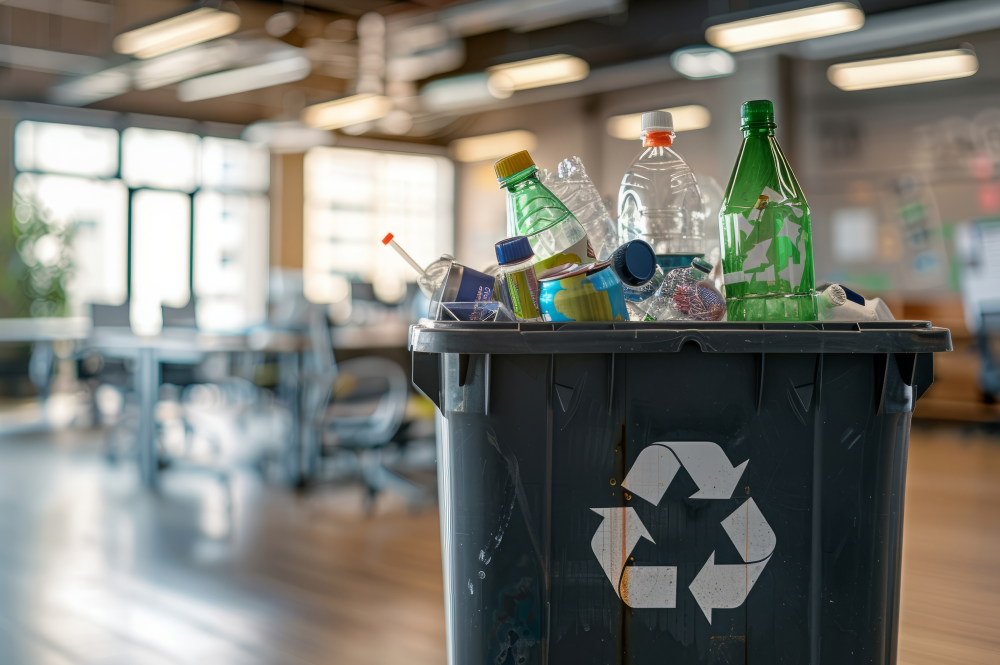Plastic Free July – Should Consumers Take the Responsibility?

Plastic Free July is an annual campaign to reuse and reduce single-use plastic, with the vision that making small changes to our everyday lives will collectively make a big difference. But will it? Does Plastic Free July put the onus on consumers, when more needs to be done by companies?
The Power of Plastic
Disposed plastic is overwhelming the planet, with pollution doubling since 2000.1 The sheer amount of microplastics means that they are spread in every part of the globe, reaching even the most remote places, including Mount Everest. Plastic poses a threat to both us and the environment, harming wildlife via entanglement and starvation, affecting our air quality, and causing harm to human health via microplastics.
The issue is that plastic is cheap, which means that retailers and manufacturers continue to use it.
Plastic Free July
Plastic Free July started over 13 years ago, asking consumers to look at their consumption of plastic and its waste, identifying the impact that you could make. It looks at incorporating simple habits and lifestyle switches in your everyday life to make a more sustainable life – such as using reusable coffee cups, choosing loose fruit and veg in supermarkets over their packaged counterparts, choosing natural fibres and clothes, picking up litter in your local area and taking your own containers for food storage.
Plastic Responsibility
A large amount of pollution solutions focus on the end of the line, with companies putting responsibility on consumers to ‘behave responsibly’, without taking ownership themselves. More focus needs to be on ‘top funnel solutions’ – like the production of plastic.
Governments
This is called the trickledown effect. Governments need to lead by example, providing regulations that can guide producers and manufacturers towards sustainable choices, as well as enforcing and monitoring companies to take responsibility for plastic and packaging.
Schemes that have already been introduced include restrictions on straws, cotton buds, and polystyrene food and drink containers, in addition to the successful restrictions on single-use plastic bags that now enforces retailers to charge for bags – resulting in a 98% decrease in the use of single-use plastic bags since its introduction in 2015.2
Manufacturers and Retailers
Research shows that 56 companies globally are responsible for more than half of branded plastic pollution,3 with 24% of litter coming from five dominant companies – food and drink manufacturers Coca-Cola, PepsiCo, Nestlé, Danone, and tobacco manufacturer Altria.4
The responsibility to tackle plastic pollution ultimately lies with retailers and plastic producers, and those who make profit from selling products made from plastic.
The issue is that manufacturers make profit from plastic because it’s cheaper than using sustainable alternatives – such as compostable materials, or even using less packaging altogether. By phasing out single-use plastic and short-lived plastic, pollution can be greatly reduced.
Conclusion
So, will Plastic Free July make the necessary impact that’s needed to reverse the impact of pollution? Unfortunately, probably not. Whilst consumer actions can make an impact on climate change; no matter how much we do, retailers and manufacturers will continue to use single-use plastic unless restrictions or standards come into force.
Consumers should continue to focus on the waste phase of products – how they dispose of items by either recycling or reusing, with hopes that manufacturers will come to their senses and make changes sooner rather than later, before it’s irreversible.
1 OECD
4 Sierra


